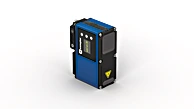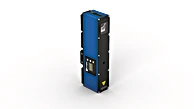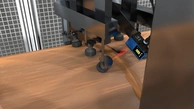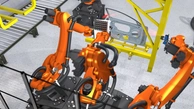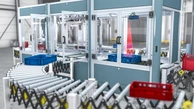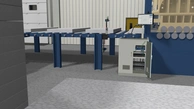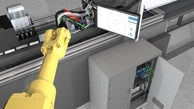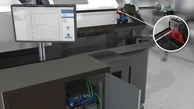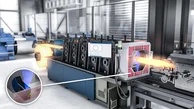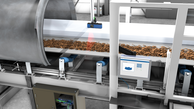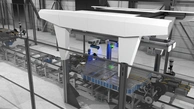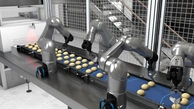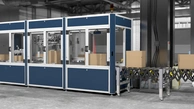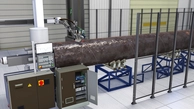Automated Weld Seam Tracking: MLZL 2D/3D Profile Sensors
Automated weld seam tracking in robot welding cells is a complex task in a harsh industrial environment. The micrometer-accurate detection of the guide point with different types of joint by 2D/3D profile sensors is one of the most effective solutions for this challenge. In combination with wenglor’s uniVision software, the new weCat3D MLZL 2D/3D tracker sensor not only combines the necessary precision and profile quality, but also offers convenient installation, integration, robustness and user-friendliness. A 2D/3D profile sensor made for welding robots: The slimline housing of the MLZL with integrated cooling and rinsing enables easy and space-saving installation directly on the welding torch. Thanks to the small housing dimensions of only 33 × 183 × 69.8 mm, the robot can therefore also operate in narrow corners. “The MLZL 2D/3D profile sensor does not require any additional protective housing, nor does it need to be tilted for alignment,” explains wenglor product manager Dr. Sascha Reinhardt. “The design also offers sufficient protection against welding spatter and disturbing ambient light.” Despite the harsh industrial environment, the welding sensor provides high-quality profiles for precise joint detection. Optionally equipped with a red or blue laser, users can choose between three laser classes: 2M, 3R or 3B. “The MLZL relies on the advanced laser technology of the weCat3D series and thus delivers outstanding profile quality for optical seam tracking,” says Dr. Reinhardt. “This sensor has been specially adapted and optimized for the high demands in welding robots, but in particular for the complex task of optical tracking of weld seams – both in terms of hardware and software.” wenglor engineers tested and developed the special triangulation sensor as part of an EAP (Early Adopter Program) together with customers from the welding industry. The feedback and know-how collected from this program ultimately flowed into the MLZL tracker sensor. “We were able to incorporate many practical experiences directly into the development and thus obtained extremely precise information in advance about what is important in automated welding processes, where users face the greatest hurdles and what their wishes are.” Software Update with New Function: uniVision 2.5.0 for Welding Applications In its current update 2.5.0, the configurable standard software uniVision receives a stand-alone module specifically for weld seam tracking. For users, this means that welding applications can be set up in just a few clicks. “Thanks to the robust algorithms, tracking points can be reliably determined even in the event of faults in the joint course, such as with datum points. Predefined templates, where all common joint types are saved, significantly reduce the configuration work,” explains Dr. Reinhardt. The results can then be visualized on a web-based basis. Several interfaces are available for direct integration into robot controls from Kuka, Fanuc, ABB, Kawasaki and Yaskawa as well as their software. In concrete terms, this means: Welding processes can now be implemented with less effort, more functions and better results. The Welding Solution for Every User The new combination of software and hardware offers flexible welding solutions for every user. We always differentiate between applications with or without robot integration. The most convenient and comprehensive system consists of a sensor, control unit with pre-installed uniVision software application and optional robot interface. “For this purpose, the system was developed as a complete solution as part of the EAP. However, there are also other combinations with or without control unit and customer-specific integration software, meaning that we can offer the right solution to suit every individual customer requirement,” Dr. Reinhardt continues. That’s uniVision, the All-in-One Software The parameterizable uniVision standard software is used to analyze images and height profiles in the field of industrial image processing. Two and three-dimensional data from smart cameras, vision systems, smart 2D/3D profile sensors and IPCs (control units) with 2D/3D profile sensors can also be evaluated. Up to 25 different software modules and different templates are available to users in total depending on the selected hardware. The Highlights at a Glance Compact housing (33 × 183 × 69.8 mm) Robust design with high IP67 protection High profile quality (1,280 points per profile) Large working range from 74 to 158 mm Large measuring range in X from 39 to 62 mm Integrated cooling and rinsing Laser class 2M, 3R or 3B Red light or blue light Special uniVision software module for weld seam tracking Robot interfaces for ABB, Fanuc, Kuka, Yaskawa and Kawasaki Industrial interfaces PROFINET and EtherNet/IP™ for easy integration into controls
Find out more >










